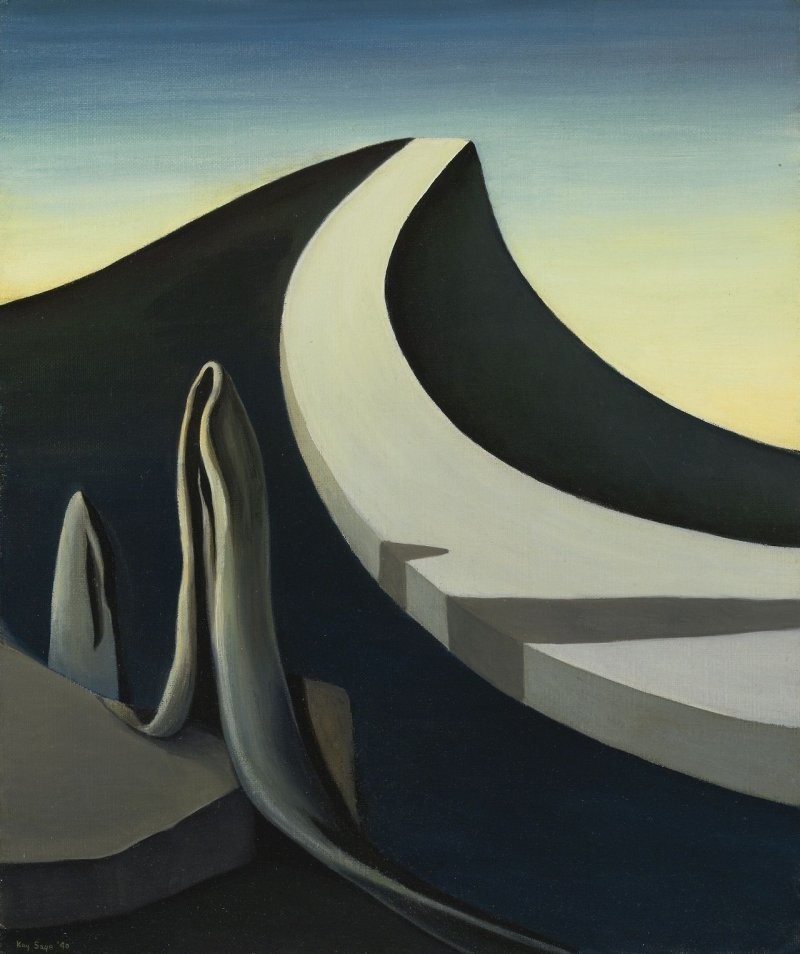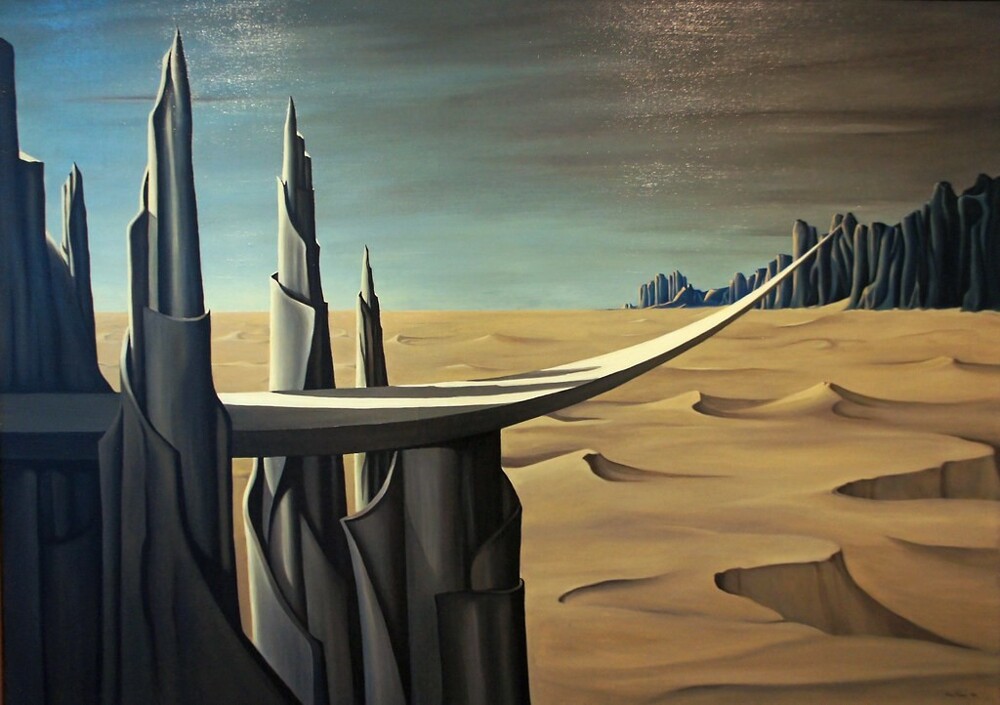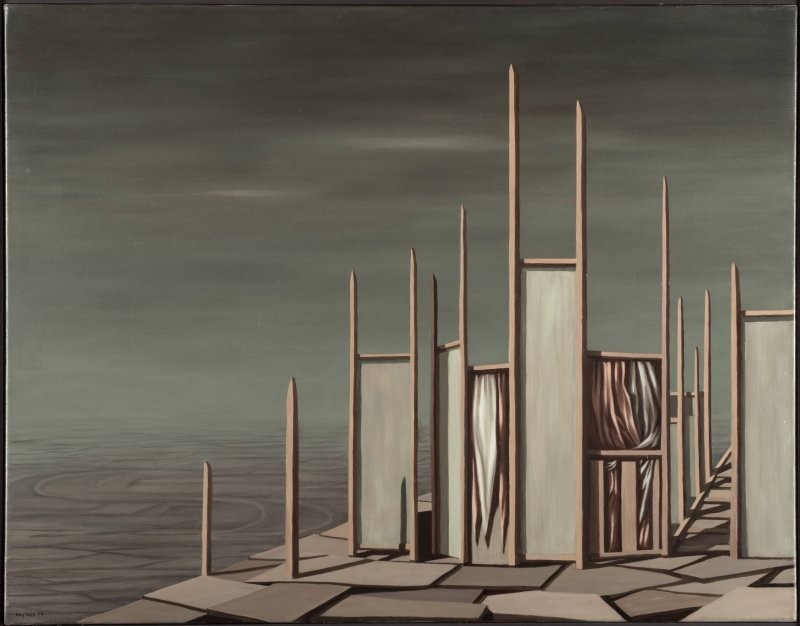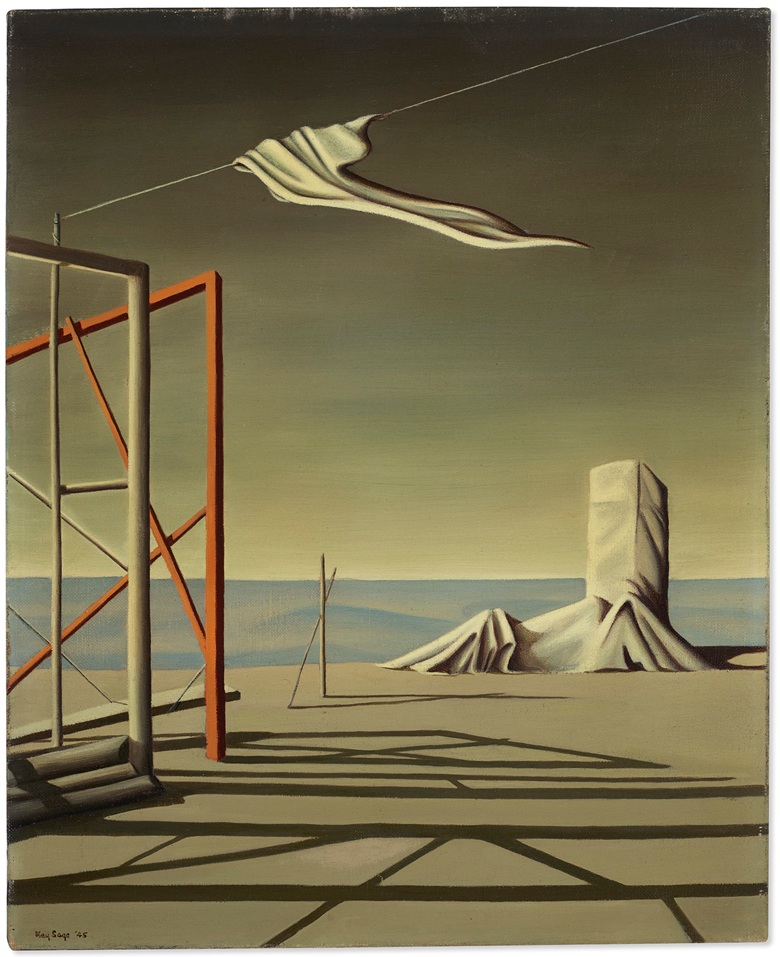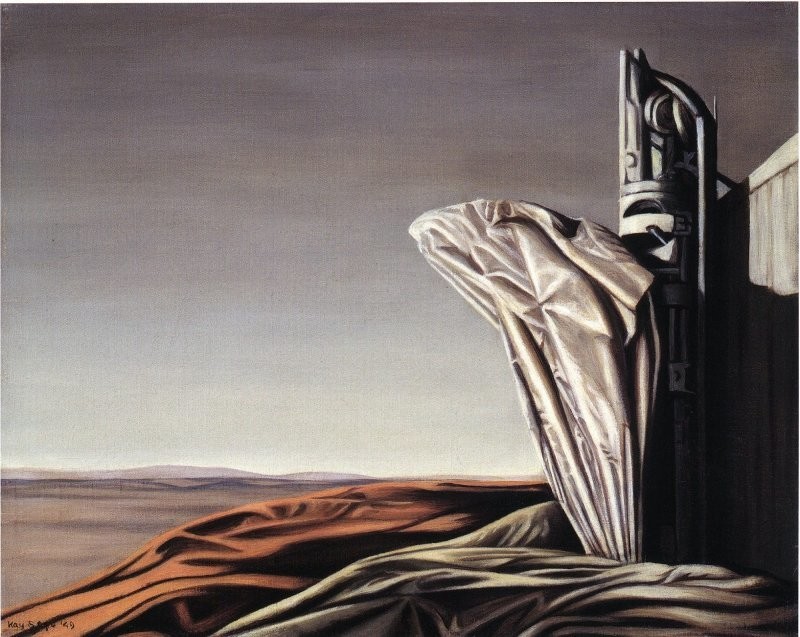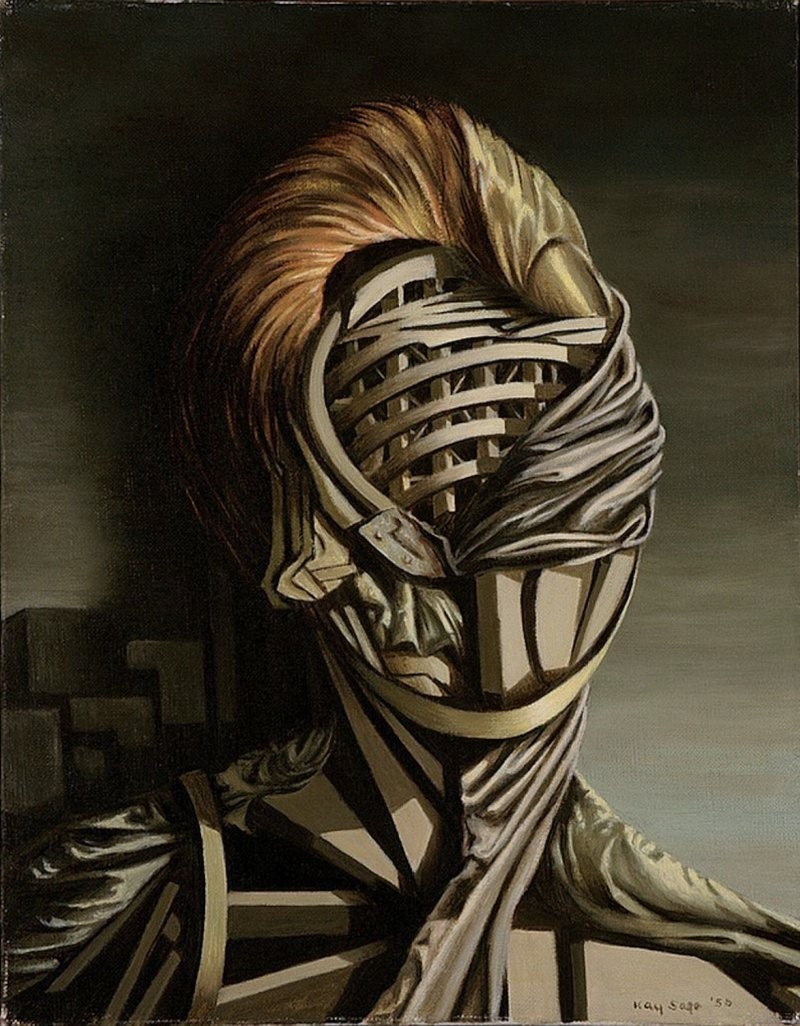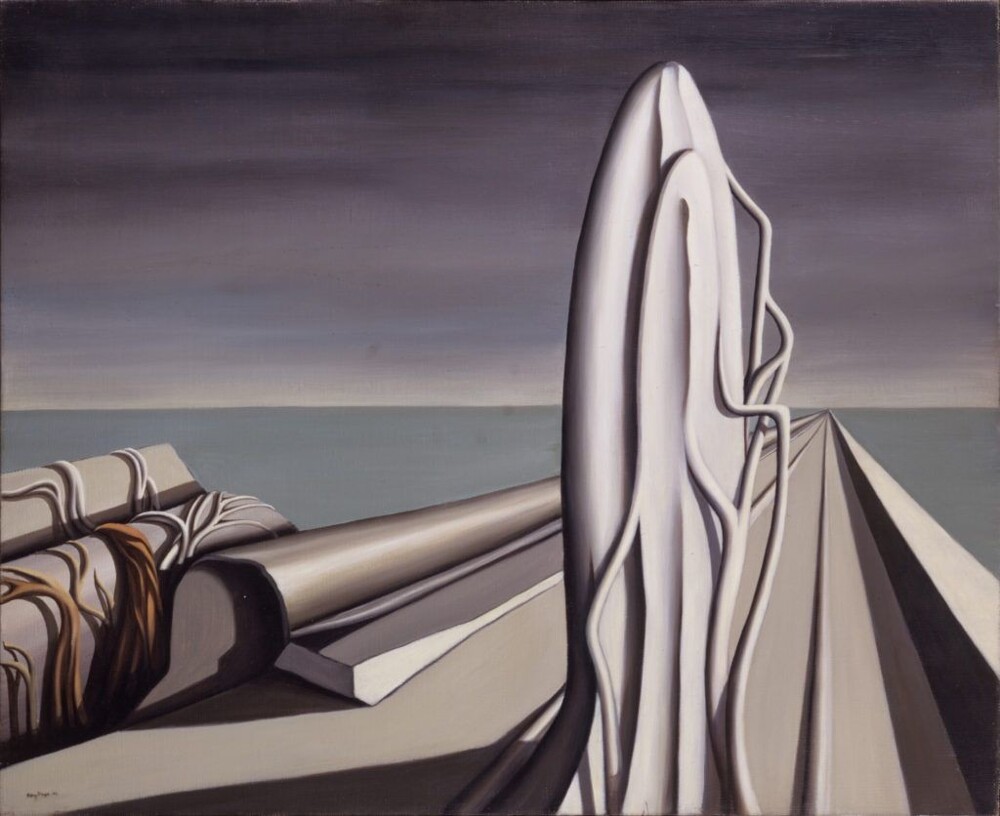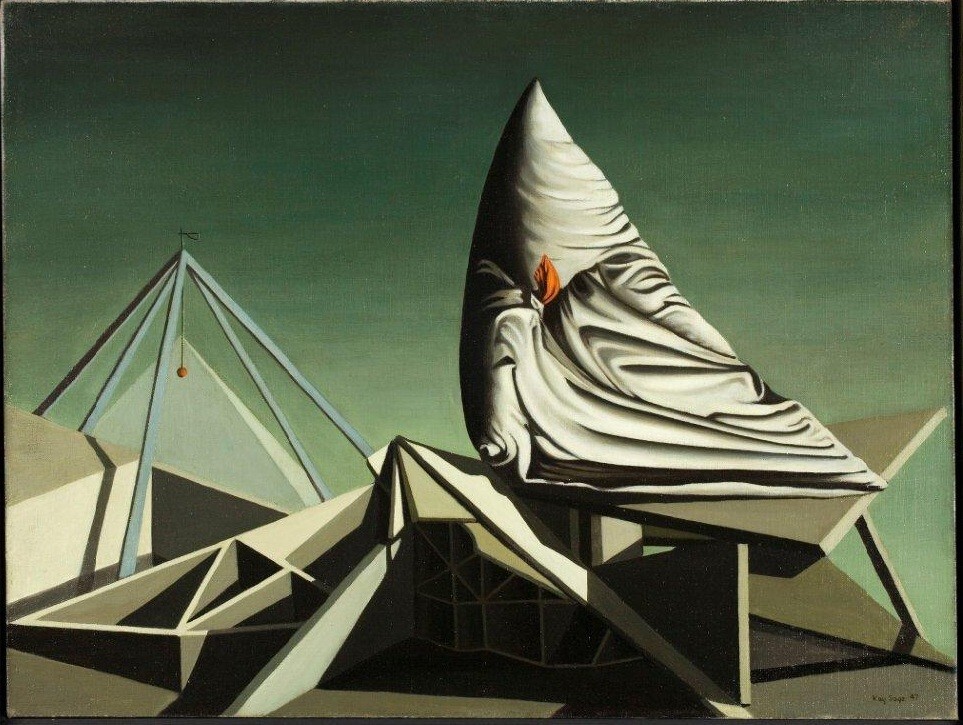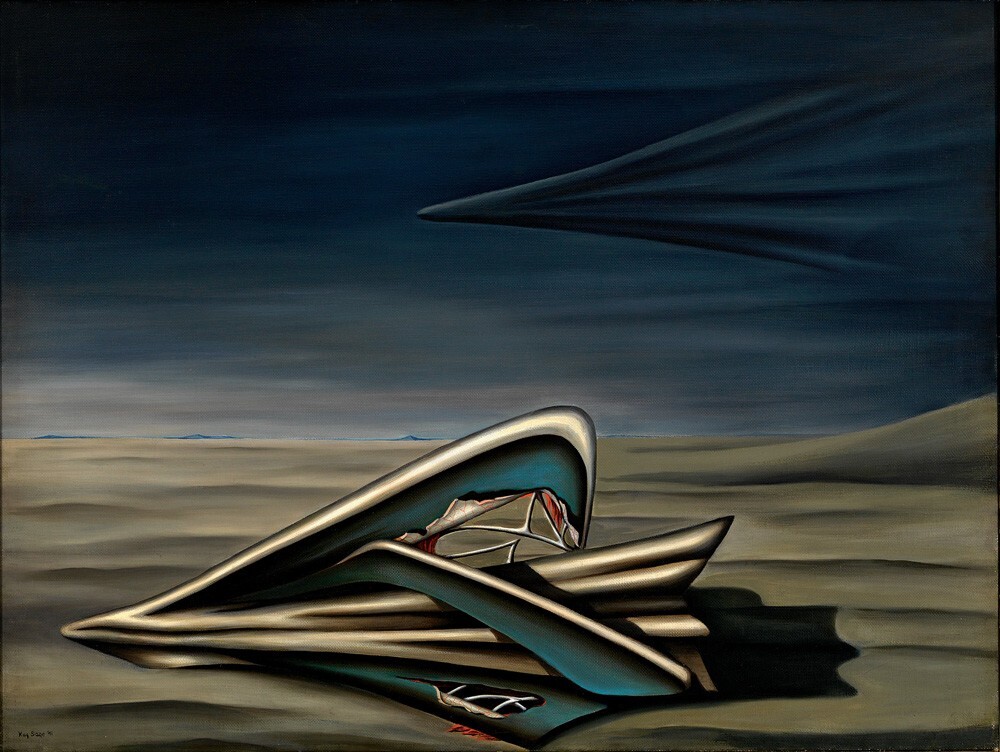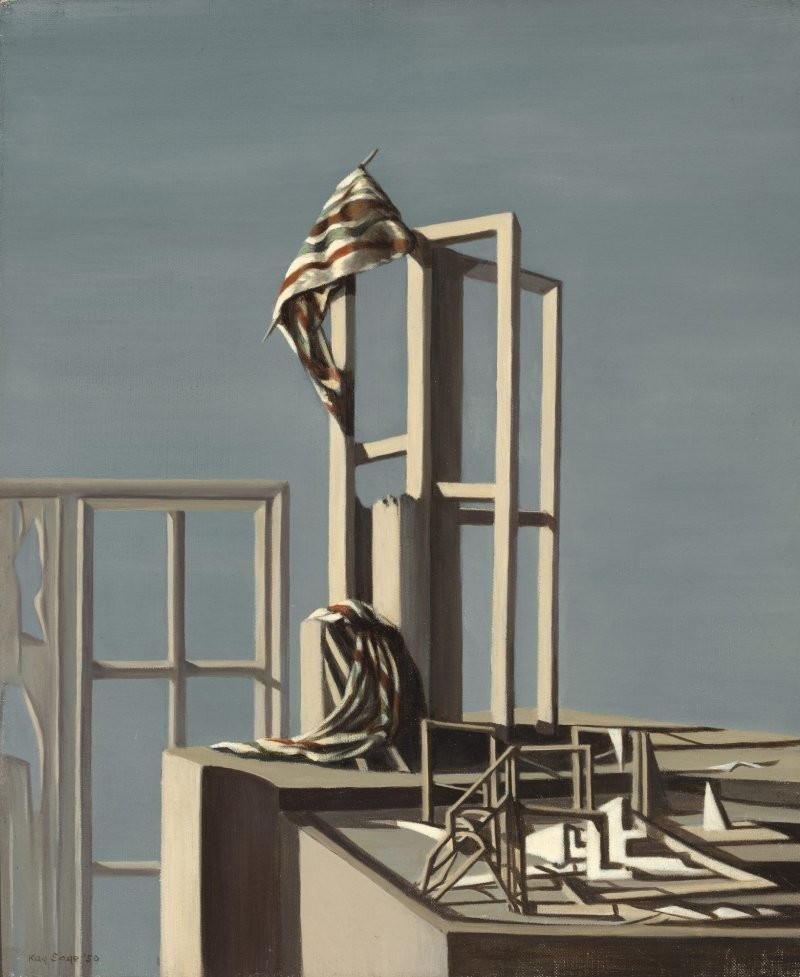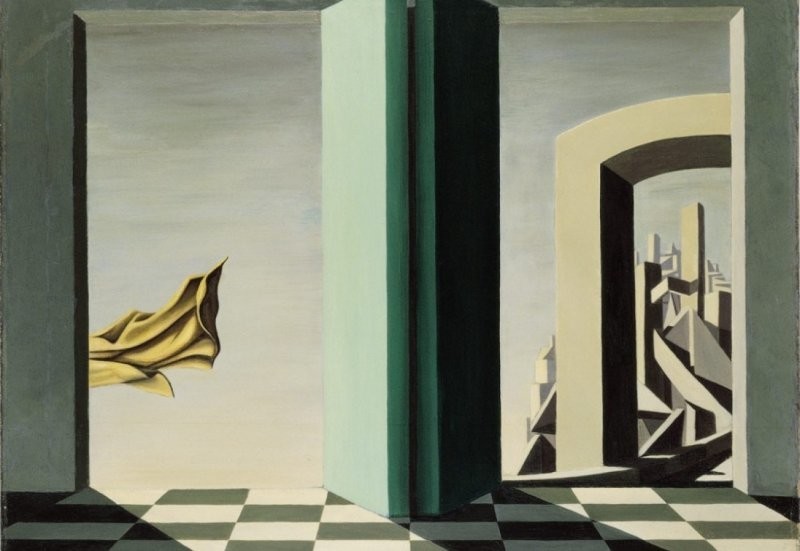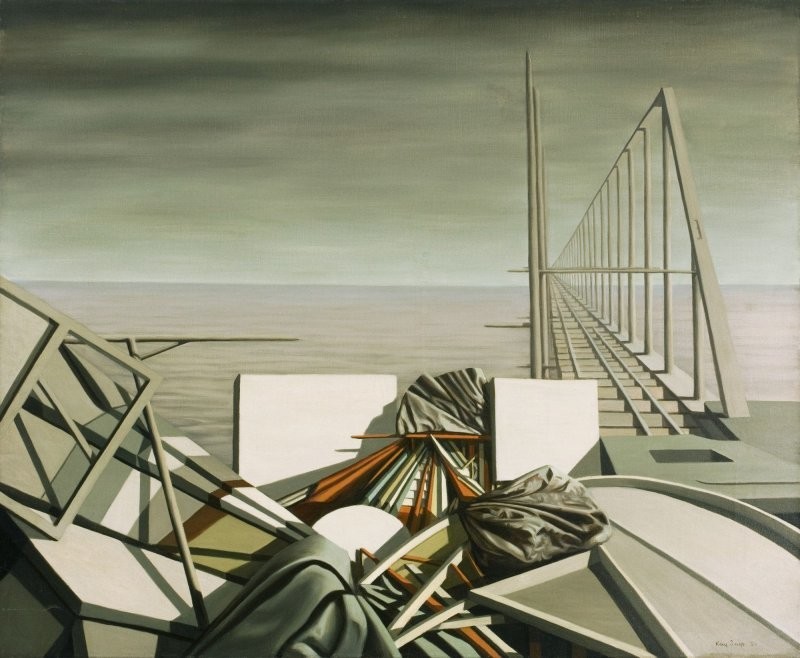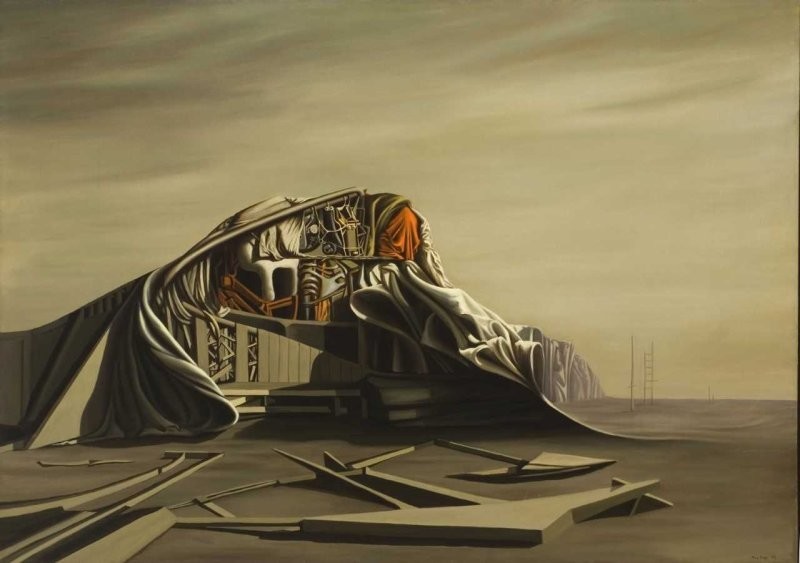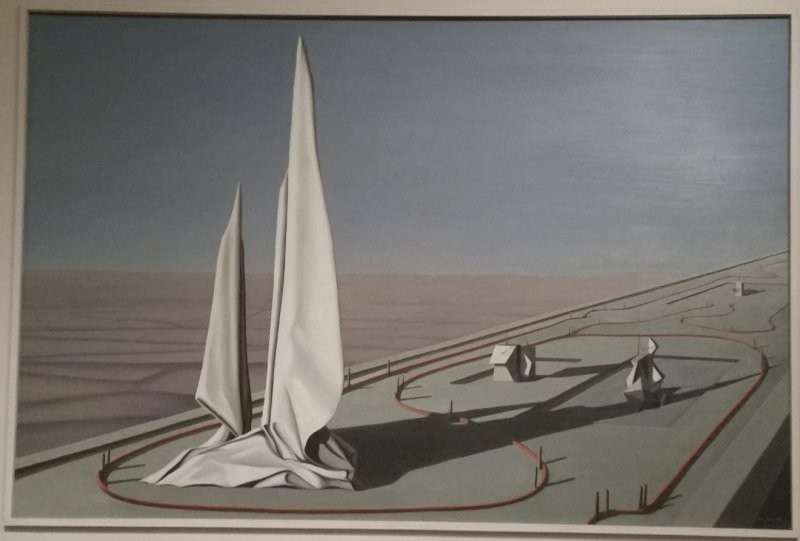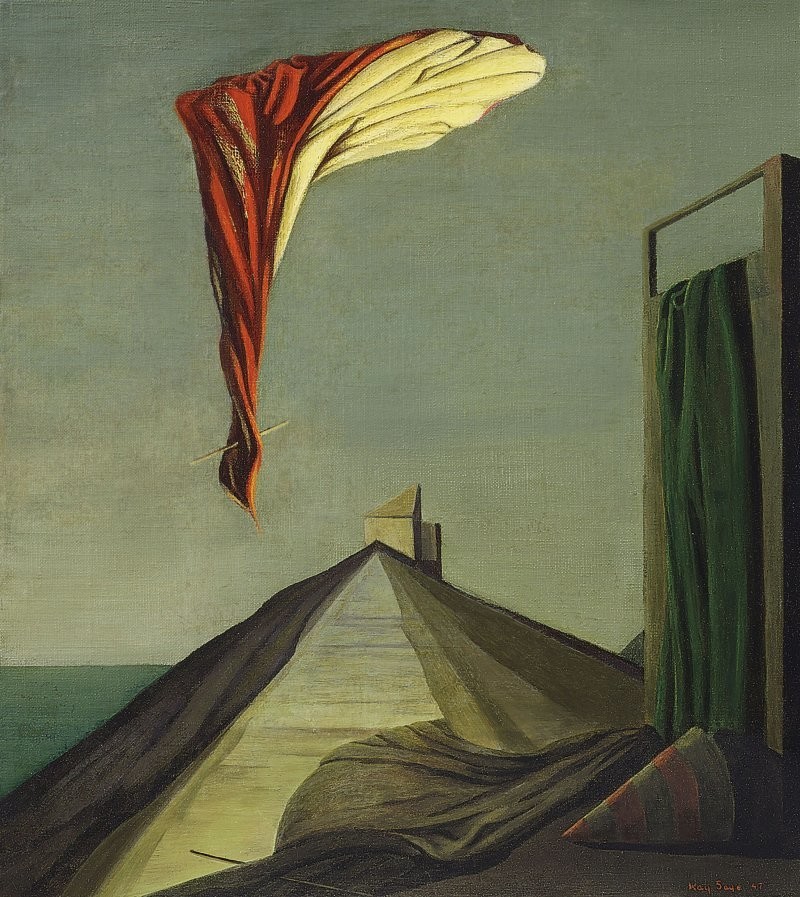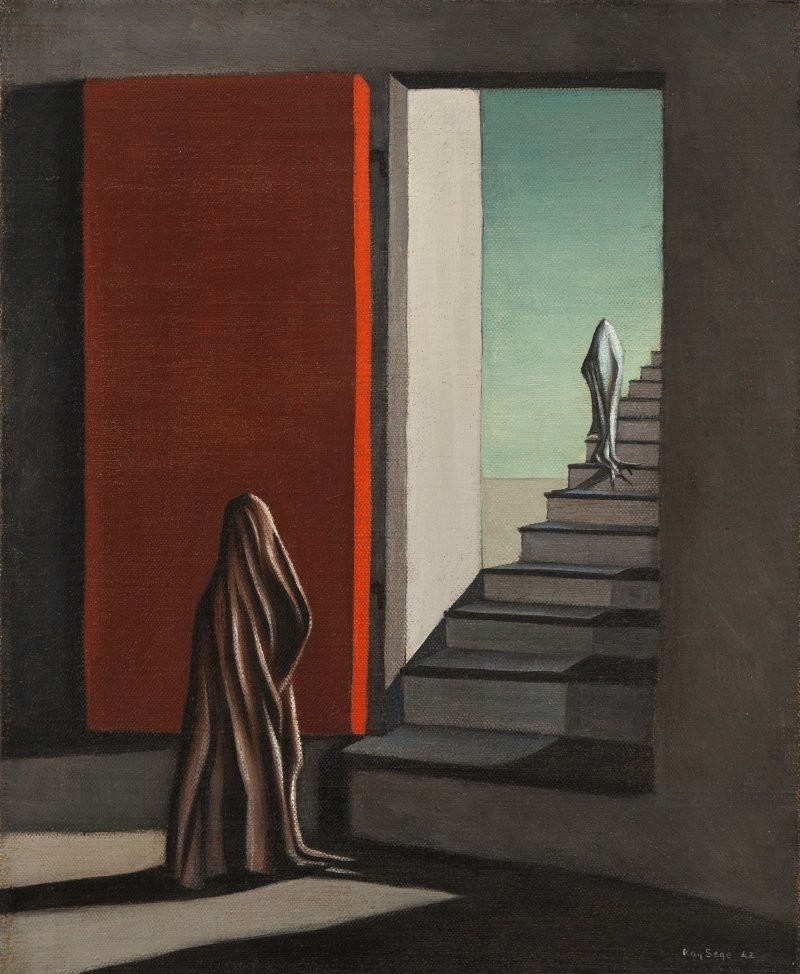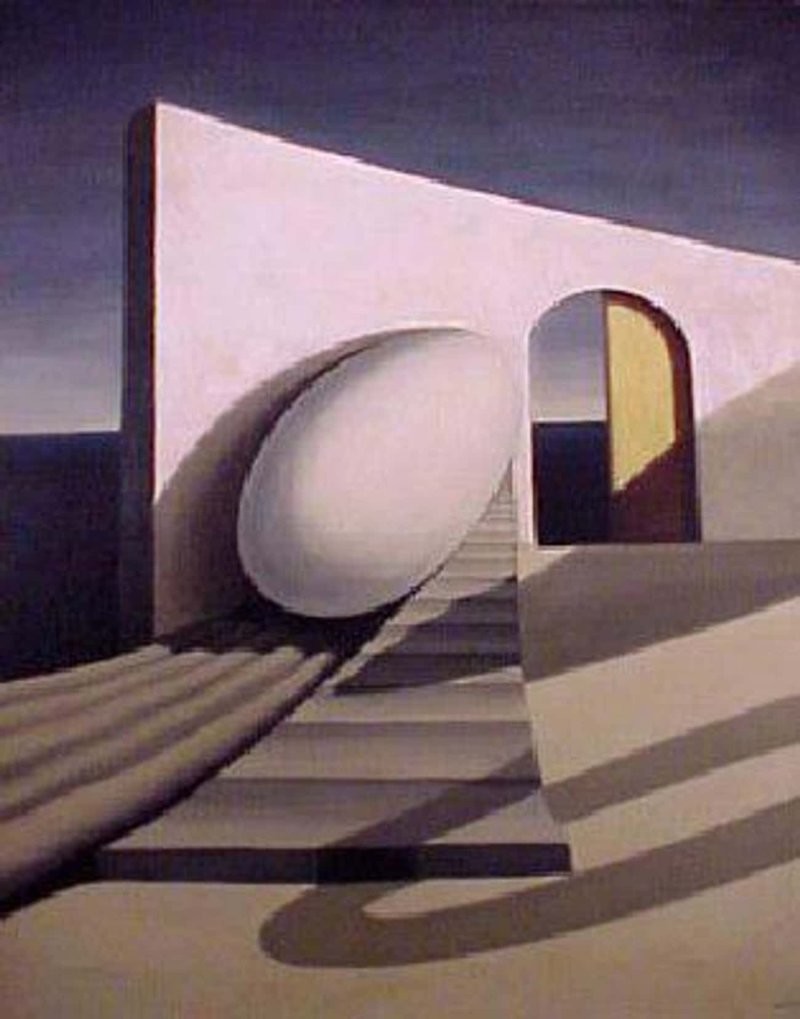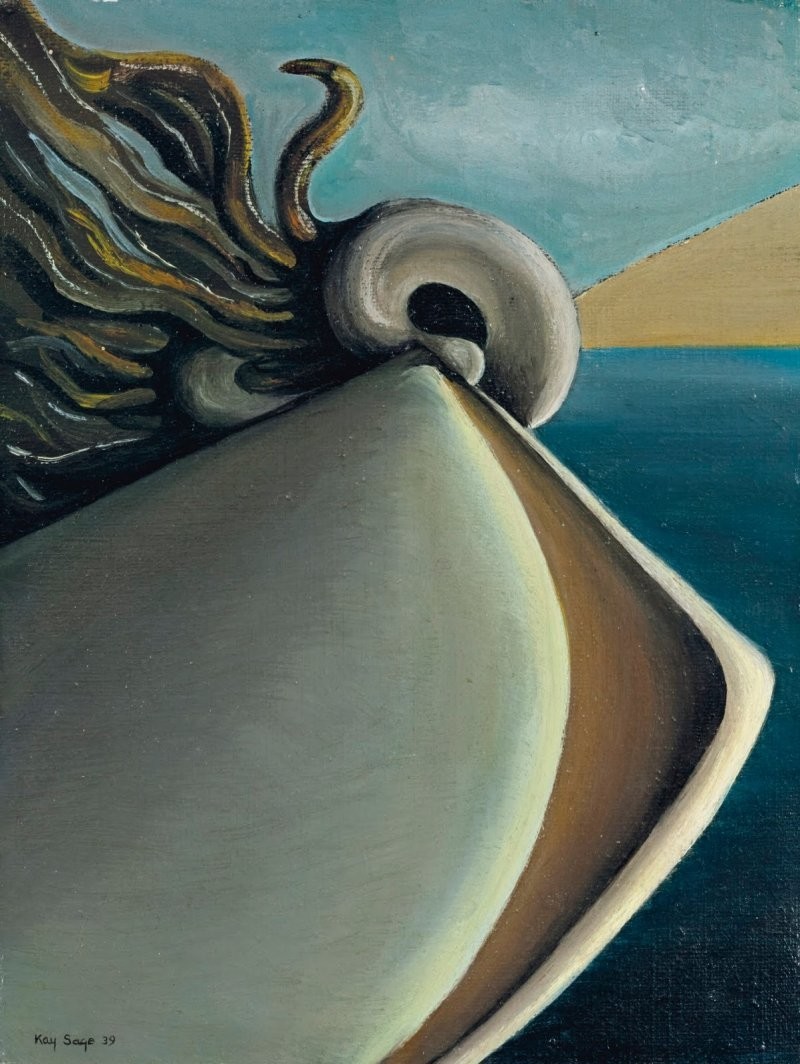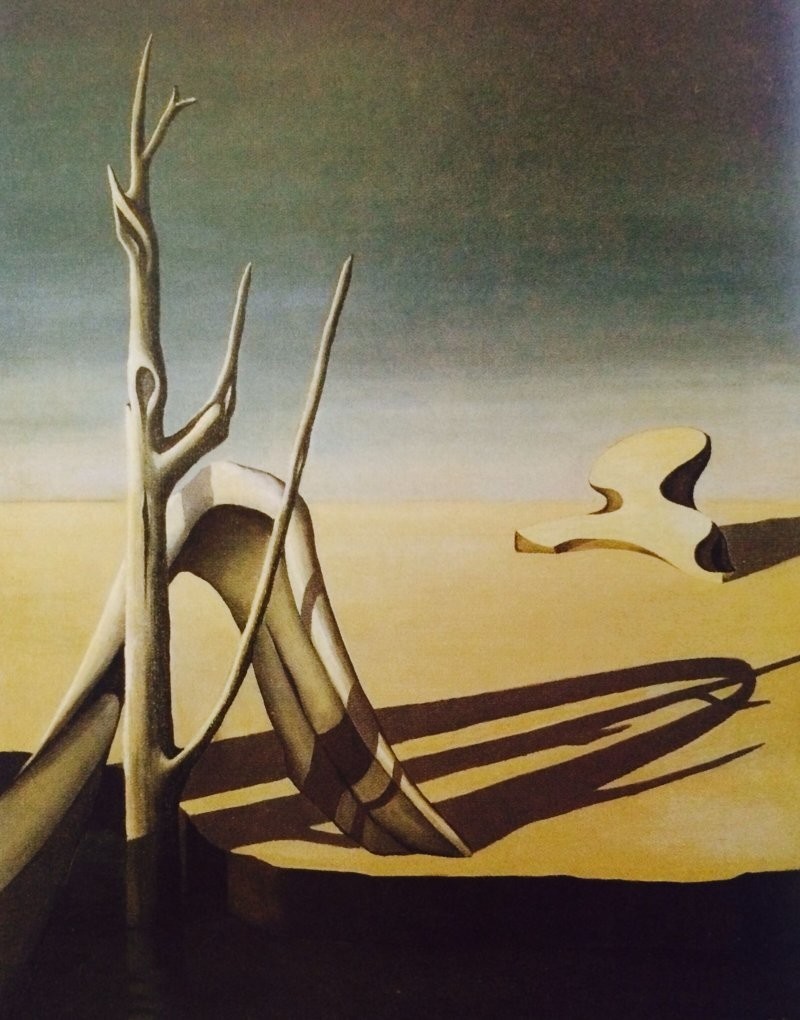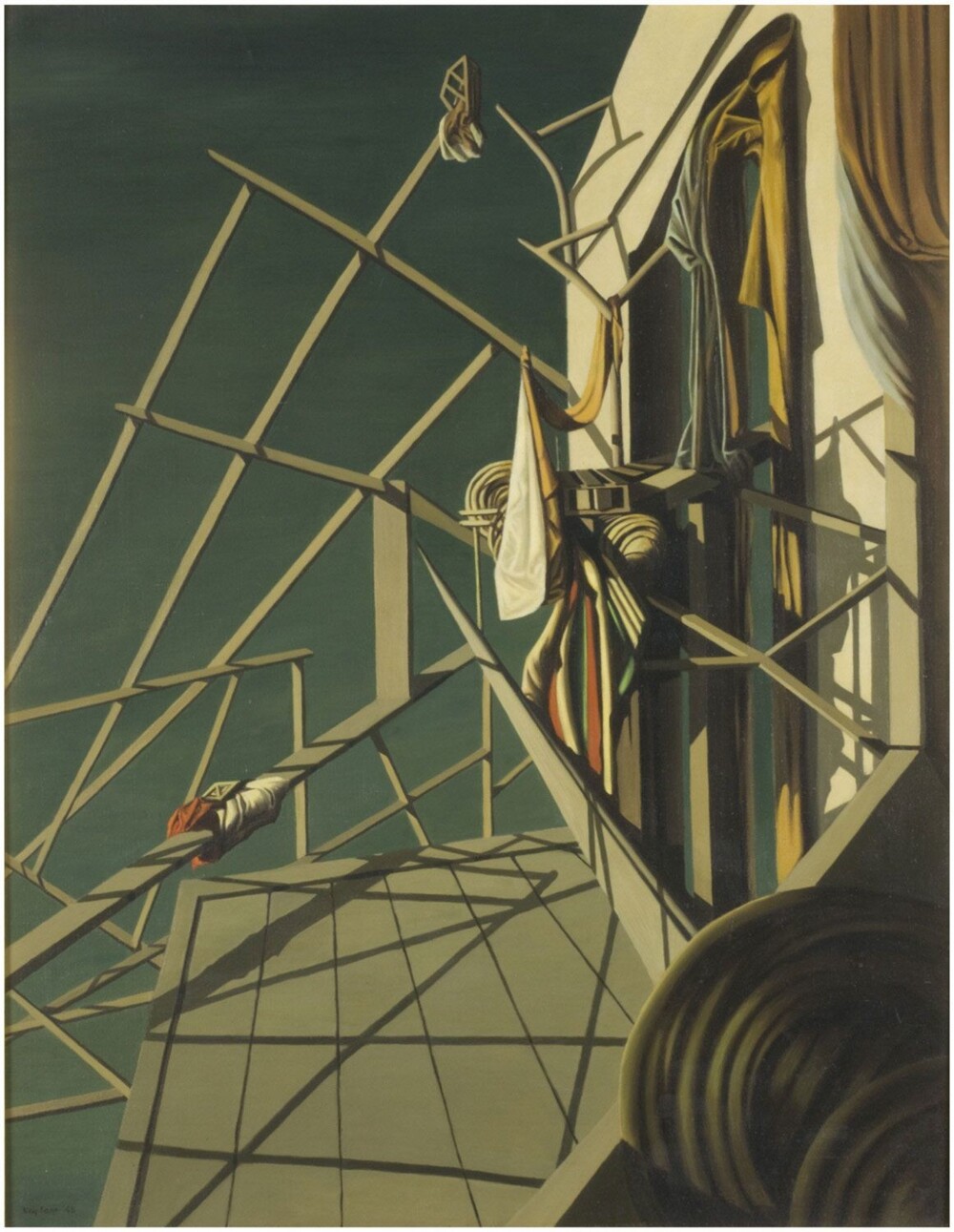The mystical creations of Kay Sage and the tragedy of their author (25 photos)
Surrealism is, in principle, not the most understandable direction for the general public. And if the author of the paintings is a woman, then understanding the intricacies of the images is even more difficult. 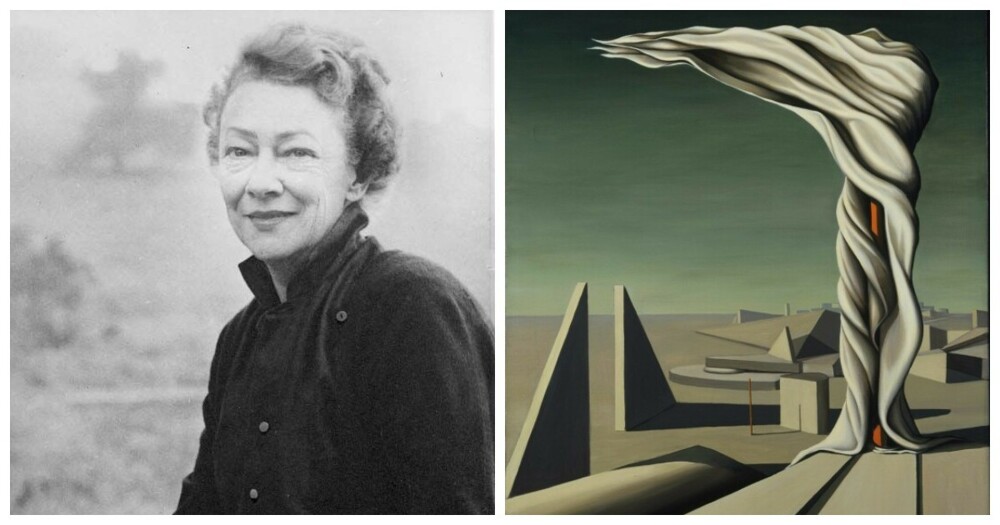
Kay Sage was born in 1898 into a wealthy family of a New York businessman. After the divorce, the mother took the girl with her to Europe, where she instilled in Kay artistry, a free way of thinking and bohemian taste. The girl learned several languages and became interested in classical Italian art, to study which she moved to Italy. 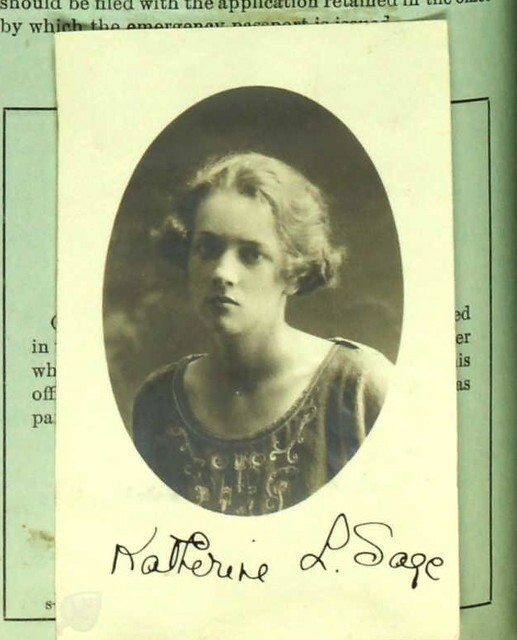
Kay married an Italian, Ranieri di San Faustino. And not an ordinary man, but a prince. But the endless number of rules, traditions and restrictions tired the free woman. And the couple broke up. 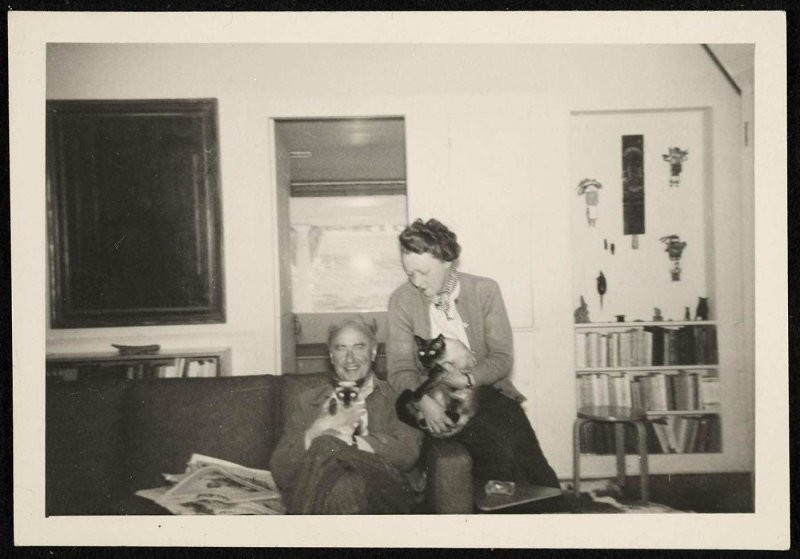

Kay Sage and Yves Tanguy
Kay's second husband and love of his life was Yves Tanguy, a French surrealist artist whose main direction of creativity was illusionistic abstractions on a marine theme. He is believed to have influenced Kay's work. This may be true, but her works are not inferior to Tanguy’s paintings in terms of artistry and emotional expressiveness.
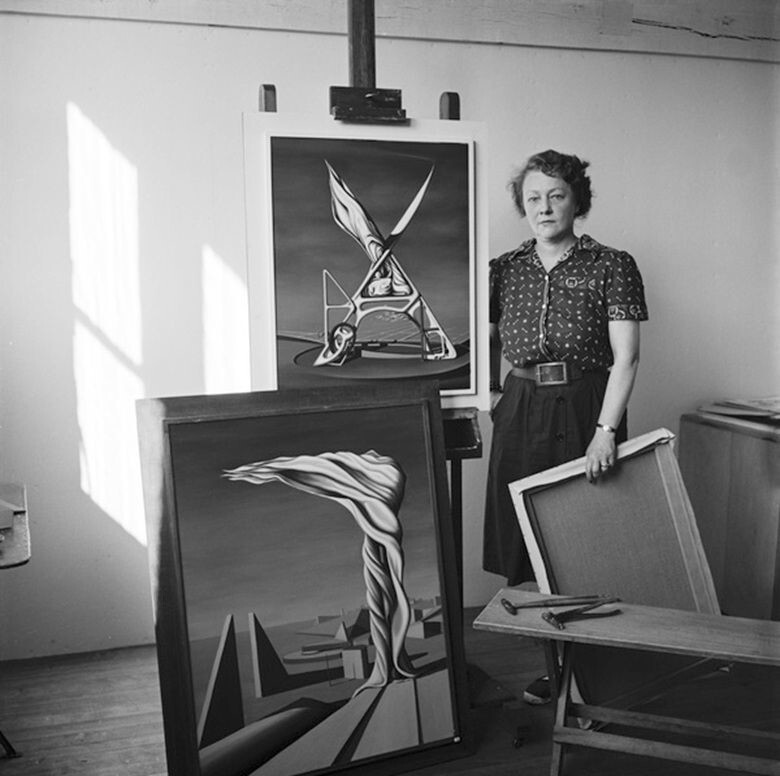
They are characterized by a restrained, pragmatic melancholy, a bright melancholy, a new vision of familiar objects. There are no people in Sage's landscapes. And this is great, because nothing draws attention to itself, does not distract attention from the infinitely noble, restrained expressiveness.
The artist’s work was also influenced by the then fashionable Freudianism, which largely contributed to the emergence and development of surrealism as a rejection of existing reality with all its problems.
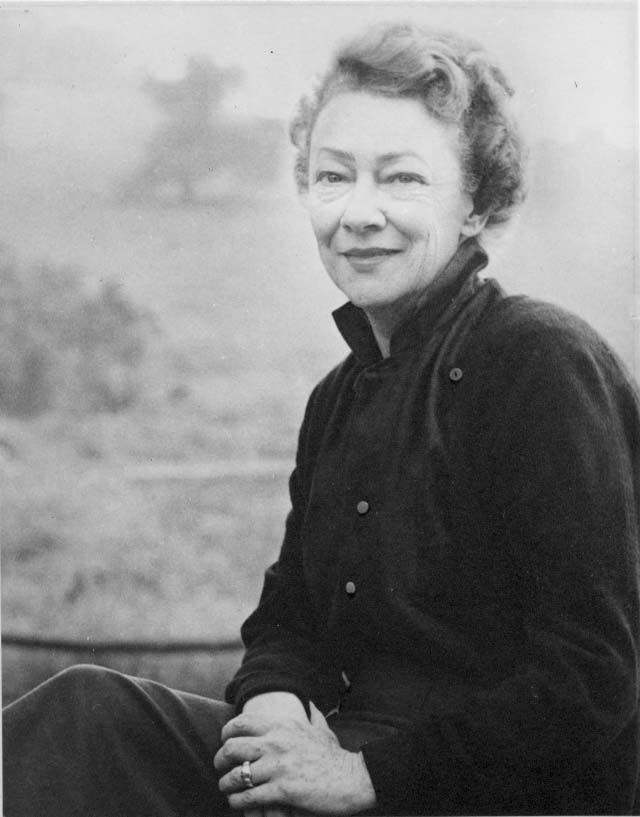
The union of the two artists was complex and tense. But it was life on the volcano that fueled both, helping them create. After Tanga's death, the woman died emotionally. Then she pulled herself together for a while and devoted time to preserving her husband’s legacy. I almost stopped writing because of the sharp deterioration in my vision.
The artist lost both meanings of her existence – her husband and painting. And in 1963 she voluntarily died, shot in the heart. And her works - sharp, empty, bewitching, pacifying and not devoid of humor - continue to inspire modern connoisseurs of the genre, evoking a latent desire to cross the line and find themselves on the other side, among the fascinatingly strange worlds of Kay.
